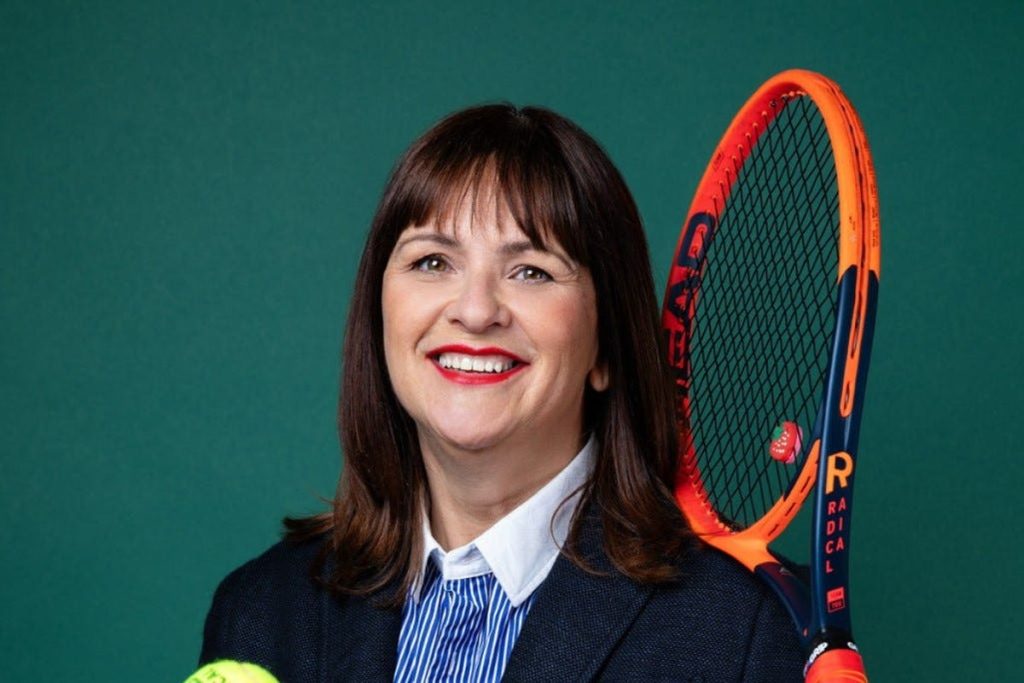The Evolution of Wimbledon: A Shift from Human Expertise to Technology
Wimbledon, one of the most iconic tennis tournaments in the world, has undergone a significant transformation over the years. For many, the tournament represents not just a sporting event but a celebration of tradition, skill, and human expertise. However, some former officials have raised concerns about the increasing reliance on technology and how it has impacted the roles of those who once played a crucial part in the game.
Pauline Eyre, a former line judge who worked at Wimbledon for 15 years, shared her perspective on this shift. Having officiated at 16 Wimbledon tournaments between 1988 and 2003, including Centre Court finals and high-profile matches like Serena Williams versus Venus Williams, she witnessed the evolution of the sport firsthand. Now 58, she believes that the introduction of electronic line-calling systems has diminished the professional status of line judges, turning them into what she calls “glorified butlers.”
The Impact of Technology on Roles and Skills
Eyre expressed her disappointment with the new role of former line judges, who are now serving as “match assistants” during the tournament. These individuals sit beside the chair umpire and assist with tasks such as ball changes. However, according to Eyre, their responsibilities have been reduced significantly.
“They look like glorified butlers,” she said, describing how some match assistants are seen taking players to the toilet or simply standing by while ball kids change the balls. She argued that this role lacks the professionalism and expertise that once defined the work of line judges. “They’ve been completely de-skilled,” she added, suggesting that the use of machines has led to a loss of valuable human skills and reduced job satisfaction.
Eyre also highlighted the emotional aspect of the game, noting that spectators enjoy seeing players deal with adversity, such as arguing with a human line judge rather than a machine. “Those lovely moments are part of the joy of Wimbledon,” she said.
The Role of Machines in Modern Society
Beyond Wimbledon, Eyre has observed a broader trend of automation replacing human roles in various industries. She described this shift as a loss of livelihoods, where people are replaced by machines without being offered equally valuable alternative opportunities. “It’s not that they are being replaced with another livelihood that’s as good,” she explained, “you just need fewer people and more of the machines.”
This sentiment is echoed by some players and officials who have encountered issues with the electronic line-call system. In one recent incident during Taylor Fritz’s semi-final, the system incorrectly called a fault, leading to a replay of the point. Wimbledon organizers attributed the error to the timing of the ball boy crossing the net, which caused the system to miss the start of the point.
Challenges and Concerns with the Technology
The reliability of the electronic line-call system has also come under scrutiny. During a match involving Sonay Kartal, the system failed to call a shot that landed well behind the baseline. An investigation revealed that the technology was turned off in error on a section of the court.
Players such as Jack Draper and Emma Raducanu have also voiced concerns about the accuracy of the system, which has been widely used on other tours but is relatively new to Wimbledon. Despite these challenges, Wimbledon organizers remain confident that they can avoid further technical issues.
A Personal Journey and Legacy
Despite her criticisms, Eyre continues to celebrate her time at Wimbledon. She is currently touring with a comedy show titled Anyone For Tennis, which recounts her experiences as a line judge over 20 years. Her journey took her to the 2000 Sydney Olympics and the US Open, where she played an essential role in the success of these events.
“I was a little girl who dreamed of playing at Wimbledon and I got to be part of it,” she reflected. “I didn’t have the talent to play at Wimbledon, but I did get a chance to be really key to its success.”
As Wimbledon continues to embrace technology, the debate over its impact on tradition, human roles, and the overall experience of the game remains ongoing. Whether this shift enhances or detracts from the spirit of the tournament is a question that will continue to spark discussion among fans, players, and former officials alike.


